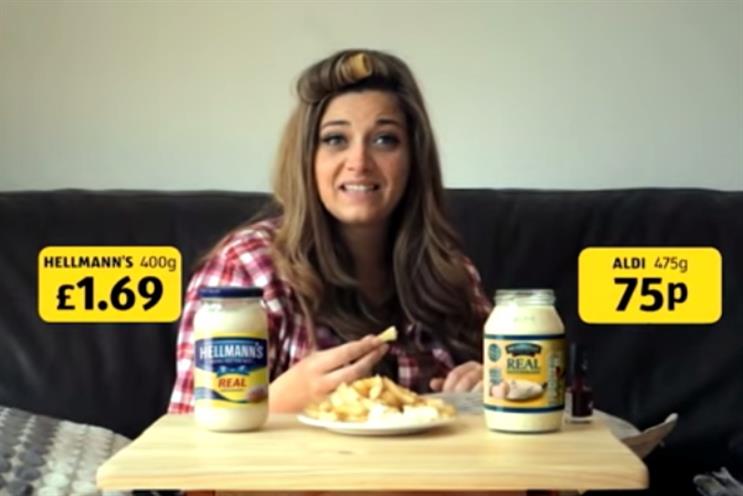Aldi and Lidl have ridden the wave of a remarkable phenomenon in British shoppers' consciousness - they have made .
Brands, however, have a lesser role to play at the discounters than they do at other retailers. And, having shown themselves masters at developing copycats of the brands consumers know and love, should brands be concerned?
Everyone should be scared of Aldi and Lidl - as a shopper you don’t have to choose between five tubes of tomato paste
Own label has always been widely accepted by shoppers in the UK, which has one of the most sophisticated markets in the world with highly successful ranges with M&S' extensive range, Tesco Finest, Sainsbury's Taste the Difference and Waitrose Essentials, to name but a few. Categories like milk, water, and fruit juice are also dominated by own label.
The percentage of overall shopping that is own label has steadily increased. Over the past decade, it has equated for marginally more sales than brands. In 2014 this figure rose to the highest percentage in ten years at 51.3%, according to exclusive Kantar data for Marketing.
The enduring importance of own label is clear: in the last week to compete with the discounters and Tscheme on its own label food to go to reappraise people's perception of the quality.
At the same time, the discounters have waged an all-out war on brands, pitting their own products against brands in And, as Marketing revealed, they are outspending the major retailers, with
In this context, and with the discounters stocking just a handful of brands but growing at break-neck speed, will this figure significantly increase?
Consumers will always have a soft spot for brands
Fraser McKevitt, head of retail and consumer insight at Kantar Worldpanel, doesn't think so. He says consumers have a "soft spot" for brands and that they create pulling power for retailers. They also, at times of intense price competition and falling prices, are essential for retailers because they can be sold at a higher price. "No mainstream retailer wants to alienate this valuable group of shoppers," he warns.
But in the no-frills shopping world of the discounters, Vhari Russell, founder of the Food Marketing Expert, says consumers are made to feel "at home" in a sea of replica-brands that "very cleverly" mimic brands like Walkers to make them feel there is no compromise.
If Lidl and Aldi can make an almost indistinguishable product, have brands been conning us for years?
So while there will always be shoppers who will only buy brands and those who prefer own label, more people are shopping the range at the expense of brands.
"Everyone should be scared of Aldi and Lidl. They have reduced SKUs so as a shopper you don’t have to choose between five tubes of tomato paste. And their branding is very clever and similar [to brands]," she adds.
As a result, the discounters have ignited a change in the shopper psyche, which brands need to be aware of warns brand consultant, Kate Jones.
"Consumers want brands and getting something that looks very much like the brand at an acceptable quality for a much better price is a no brainer for so many consumers," she says.
Lazy brands beware
"Brands need to watch out and 'lazy brands' with no story to tell and no differentiation should beware. If Lidl and Aldi can make an almost indistinguishable product, have brands been conning us for years?"
Whilst nostalgia and heritage brands like Coke, Heinz Tomato Ketchup, Walkers Crisps are preferred to own label versions, brands are steadily becoming "democratised", she warns, because the discounters have added a new dimension of transparency to retail.
Although own label may feel like it is getting the upper hand today, brands will and can fight back because no one is more expert at making a brand than the brand owner
Copycat products are a direct threat to brands, especially when Lidl and Aldi plough so much marketing cash into "unashamed" taste tests, she says, pitting their products directly against big brands.
As the line between brands and own label blurs, brands need to innovate harder and faster, with "honesty, meaning and a story". "Being "big" is no longer a winning strategy, Jones adds, and neither is "spending your way into relevance" with big budget marketing campaigns.
On the other hand, own brand also needs to up its game. Retailers including Asda, which is set to increase its own label offering, need to prove they care about customers by developing interesting, quality ranges.
"The retail market is fast moving," she says, "and although own label may feel like it is getting the upper hand today, brands will and can fight back because no one is more expert at making a brand than the brand owner."


